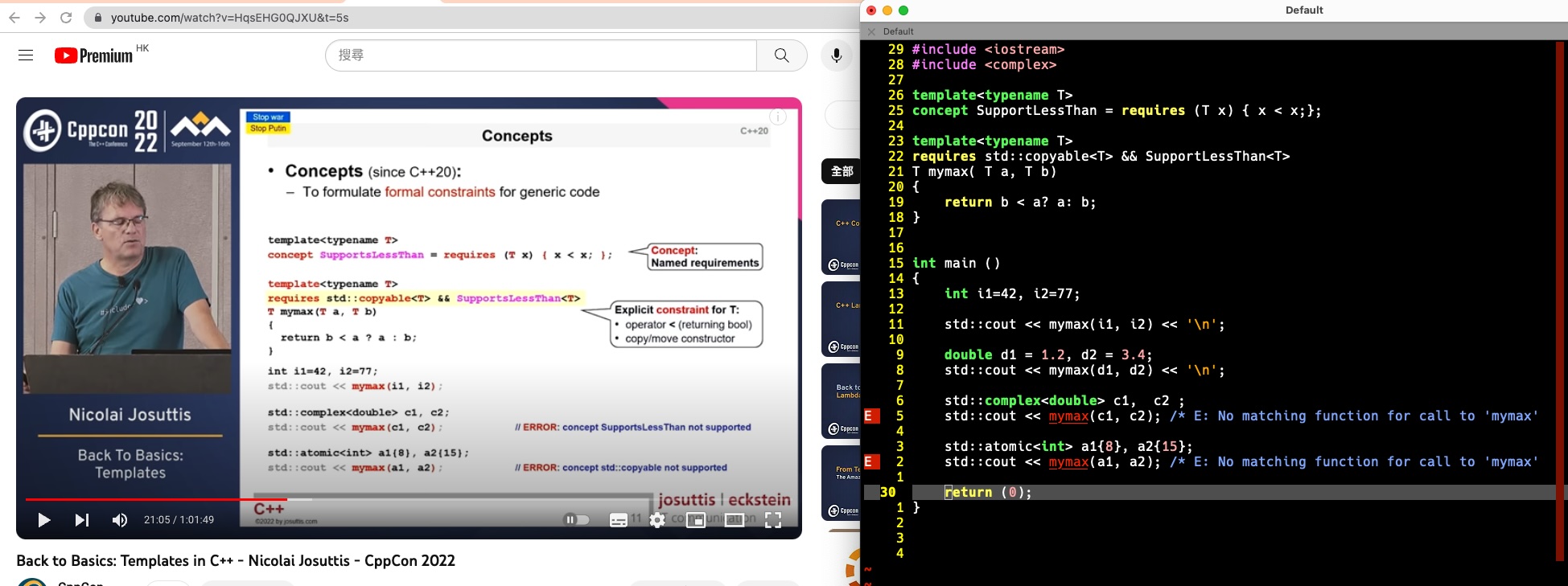Templates and Concepts
I have played around with templates and concepts according to Nicolai Josuttis’s video on templates

It is a small exercise, but it is a good example of how to apply different concepts(an English word, means ideas) in C++. In this case, templates and concepts (as a feature introduced in C++20).